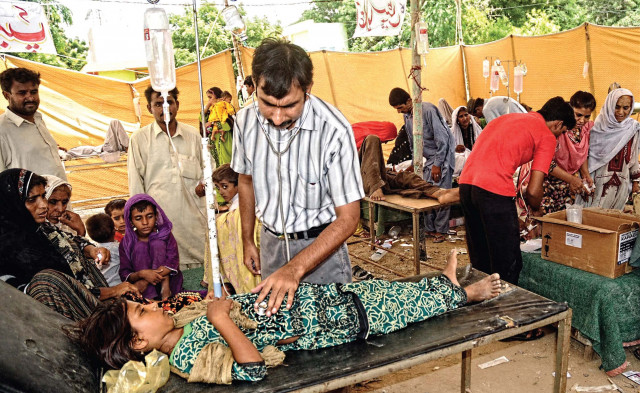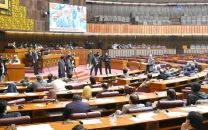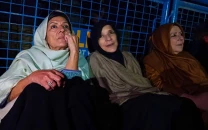Militancy woes: Health care not on the agenda
Experts reveal the dearth of basic health facilities in the conflict-hit region of Kurram.

Militancy-hit Kurram Agency is drowning in a sea of trouble, with a daily death rate of 15 to 20 on average because of lack of medical facilities.
With rural health care centres having been destroyed as a result of terrorism, even avoidable diseases often turn out to be fatal.
Kurram tribal agency is located in the Federally Administered Tribal Areas and became a frontline region during the Soviet invasion of Afghanistan in the 1980s.
The once-peaceful valley saw an influx of Afghan jihadis and became rife with sectarian clashes. The agency remains conflict-hit to date because of events following September 11.
Talking to The Express Tribune, a senior gynaecologist from Kurrum Agency said on the condition of anonymity that there is only one public hospital in the region, The Agency Headquarter Hospital, which treats seriously injured people every day. However, due to lack of health facilities and equipment, it fails to provide timely and appropriate treatment.
“Sometimes the hospital receives people with slit throats or missing body parts. Such patients often die on account of not getting timely treatment or lack of professional health care,” she said.
She also informed that health professionals from nearby cities like Peshawar are reluctant to come to Kurram due to security reasons. Therefore, local doctors are performing the duties of senior professionals who are inexperienced in fields such as cardiology, pulmonology and neurology, among many others.
Fake and expired medicines coming from Afghanistan is also contributing to the deaths of patients. There are no oxygen cylinders in the hospital and ambulances are frequently attacked by terrorists.
The gynaecologist said that about seven to eight women die during childbirth while 10-13 infants die because of unavailability of oxygen cylinders on a daily basis. Furthermore, the absence of a cold-chain is not maintained for vaccines, decreasing their effectiveness.
Shabbir Sajid, chairperson Society Reformers and spokesperson of Youth of Parachinar, agreed that the existing health facilities in the region are in a deplorable condition.
Sharing some figures, he said a total of 22 Basic Health Units (BHU) in Kurram Agency and 47 civil dispensaries are non-functional, while seven BHUs and 20 dispensaries have been totally destroyed. Also, in public hospitals, there are no oxygen cylinders, X-ray or ultrasound services, or blood bags which result in 20-25 deaths daily.
Serious patients cannot travel to Peshawar or other nearby cities due to the absence of public transport. The only way to travel is by air, which a majority of people cannot afford. “A one way ticket costs Rs 35,000-50, 000,” he said.
Published in The Express Tribune, May 8th, 2011.


















COMMENTS
Comments are moderated and generally will be posted if they are on-topic and not abusive.
For more information, please see our Comments FAQ